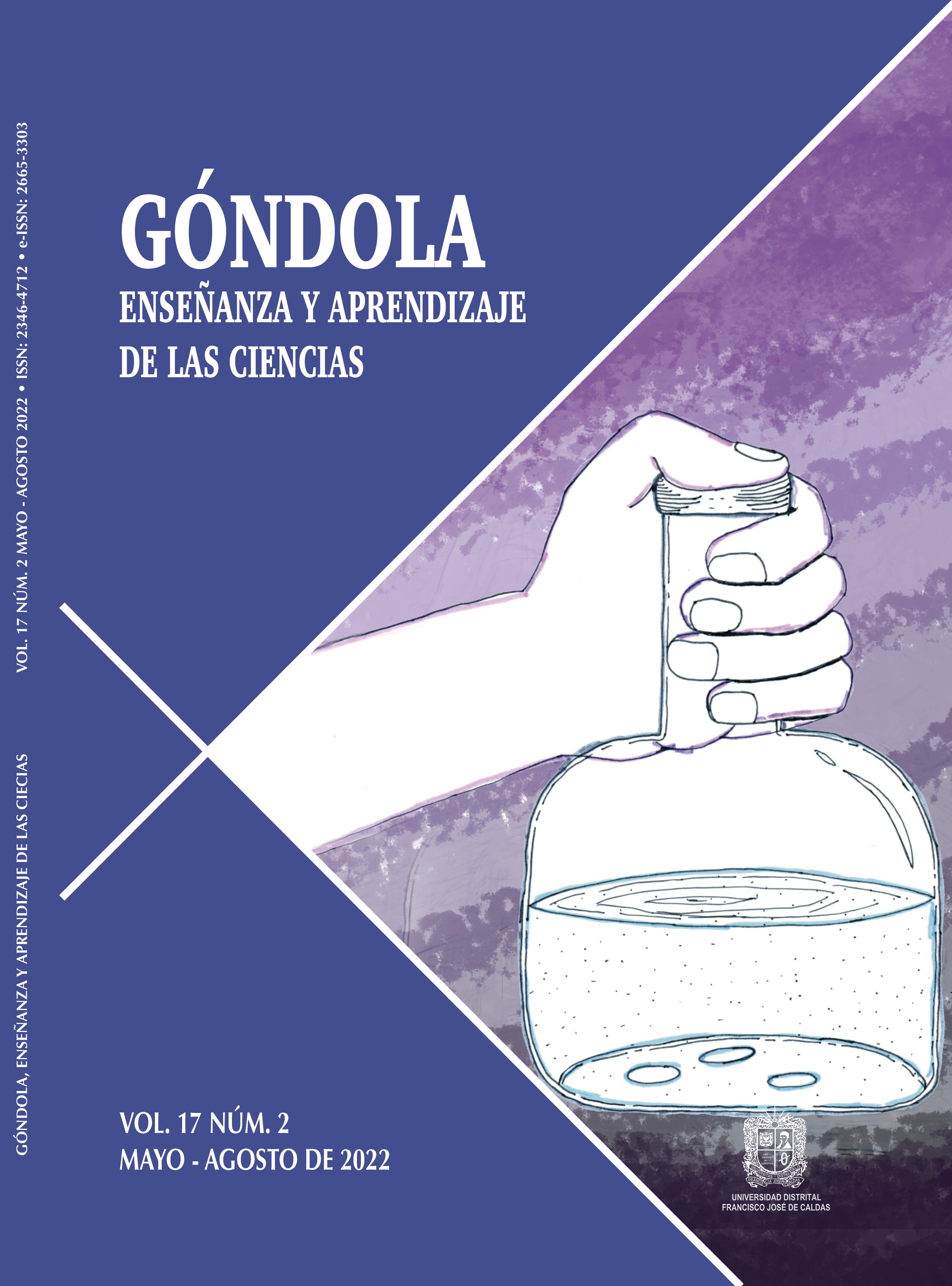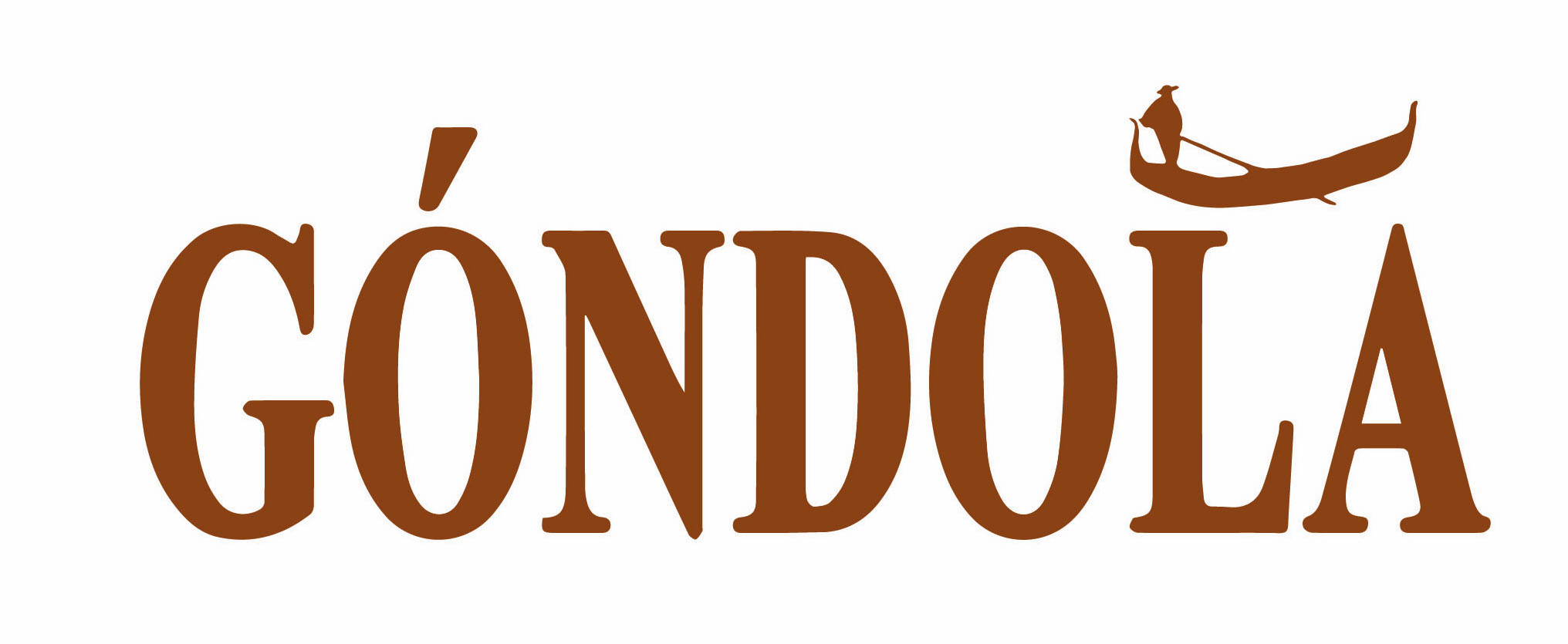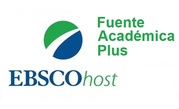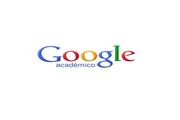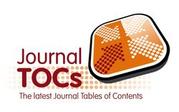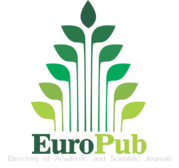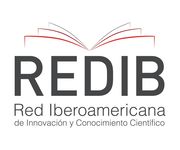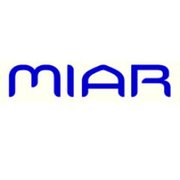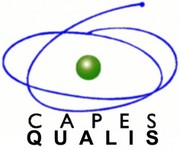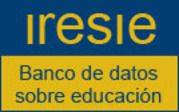DOI:
https://doi.org/10.14483/23464712.17860Publicado:
2022-06-15Analysis Of Pre-Service and In-Service Teachers’ Perceptions About Practical Activities Involving Remote Laboratory
Análisis De Las Percepciones De Docentes Y Estudiantes Graduados Sobre Las Actividades De Laboratorio Remoto
O Análise Das Percepções De Professores Em Formaçao Incial E Continuada Sobre Atividades Envolvendo Laboratório Remoto
Palavras-chave:
Enseñanza y formación, Ciencias y tecnología, Tecnologías de la información y comunicación, Experiencia de laboratorio, Experimentación (es).Palavras-chave:
Education and training, Science and technology, Information and communication technologies, Laboratory experiments, Experimentation (en).Palavras-chave:
Ensino e formação, Ciências e tecnologia, Tecnologias de informação e comunicação, Experiências de laboratório, Experimentação (pt).Downloads
Resumo (en)
The use of information and communication technologies in education and teacher training is a topic investigated in various areas of knowledge. Recognizing aspects related to pedagogical problematization using specific technologies beyond the technical use of resources in pedagogical practices has also been a concern in this research area. In this scenario, the Remote Laboratories present tools that can contribute to developing experimental practices, incorporating technologies that contribute to the student's scientific education. This work investigates the perceptions of chemistry students and science teachers regarding an activity that involves a practical activity in the Remote Laboratory. Data collection was using questionnaires, analyzed qualitatively through the Discursive Textual Analysis technique. Results show positive perceptions about this type of laboratory in terms of its versatility to face real problems and in environments with few resources and possibilities for pedagogical actions aimed at working with active methodologies, promoting student participation. Most of the negative perceptions refer to aspects that are not directly related to the remote laboratory but are associated with the investigative nature of the activity. Some perceptions refer to topics to be improved, such as the delay in the experiment transmission. It was possible to promote a process of reflection on the use of these resources.
Resumo (es)
El uso de las tecnologías de la información y la comunicación en la educación y la formación de profesores se ha investigado ampliamente en varias áreas del conocimiento. Reconocer aspectos relacionados con la problematización pedagógica para el uso de tecnologías específicas más allá del uso técnico de recursos en las prácticas pedagógicas también ha sido una preocupación en esta área de investigación. En este escenario, los Laboratorios Remotos presentan herramientas que pueden contribuir al desarrollo de prácticas experimentales incorporando tecnologías que contribuyan a la educación científica de los estudiantes. Este trabajo investiga las percepciones de estudiantes de química y de docentes de ciencias con respecto a una actividad que implica el uso de una actividad práctica mediante el Laboratorio Remoto. Para recolectar los datos se utilizaron cuestionarios abiertos, los cuales fueron analizados cualitativamente mediante la técnica de Análisis Textual Discursivo (ATD). Nuestros resultados muestran que existen percepciones positivas sobre el uso de este tipo de laboratorio en cuanto a su versatilidad para enfrentar problemas reales y en entornos con pocos recursos y posibilidades de acciones pedagógicas orientadas a trabajar con metodologías activas, promoviendo la participación de los estudiantes. La mayoría de las percepciones negativas se refieren a aspectos que no están directamente relacionados con el laboratorio remoto, asociadas el carácter investigativo de la actividad. Algunas percepciones se refieren a factores que necesitan mejorarse, como el retraso en la transmisión del experimento. Se logró promover un proceso de reflexión sobre el uso de estos recursos.
Resumo (pt)
O uso das Tecnologias da Informação e da Comunicação na educação e na formação de professores tem sido amplamente pesquisado em diversas áreas do conhecimento. Reconhecer aspectos relacionados à problematização pedagógica para o uso de tecnologias específicas além da inserção técnica de recursos nas práticas pedagógicas também tem sido uma preocupação nesta área de pesquisa. Nesse cenário, os Laboratórios Remotos apresentam ferramentas que podem contribuir para o desenvolvimento de práticas experimentais incorporando tecnologias que contribuem para a aprendizagem dos alunos no ensino de ciências. Se pesquisam as percepções de graduandos de química e professores de ciências a respeito de uma atividade que envolve a utilização de uma atividade prática com o uso de um Laboratório Remoto. A coleta de dados foi mediante questionários abertos, os quais foram analisados qualitativamente por meio da técnica de Análise Textual Discursiva. Nossos resultados mostram que há percepções positivas quanto ao uso deste tipo de laboratório, quanto à sua versatilidade para lidar com problemas reais e em ambientes com poucos recursos e possibilidades de ações pedagógicas, voltadas ao trabalhar com metodologias ativas e promover o envolvimento dos alunos. A maioria das percepções negativas referem-se a aspectos que não estão diretamente relacionados ao laboratório, como o caráter investigativo da atividade. Algumas percepções referem-se a fatores que precisam aprimorados como o atraso na transmissão do experimento. Foi possível, por meio das percepções encontradas, promover um processo de reflexão sobre a utilização desses recursos.
Referências
ALKHALDI, T.; PRANATA, I.; ATHAUDA, R.I. A review of contemporary virtual and remote laboratory implementations: observations and findings. Journal of Computer Education, v.3, pp. 329-351. 2016.
https://doi.org/10.1007/s40692-016-0068-z
ARROIO, A.; et al. O show da química: motivando o interesse científico. [The chemistry show: motivating scientific interest], Químca Nova, v.29 número 1, pp. 173-178. 2006
https://doi.org/10.1590/S0100-40422006000100031
AVARGIL, S.; LAVI, R.; AND DORI, Y. J. Students' metacognition and metacognitive strategies in science education. In Y. J. Dori, Z. Mevareach, & D. Baker (Eds.), Cognition, metacognition, and culture in STEM education, Cham: Springer, pp. 33-64. 2018.
https://doi.org/10.1007/978-3-319-66659-4_3
BALADOH, S. M.; ELGAMAL, A. F.; ABAS, H. A. Virtual lab to develop achievement in electronic circuits for hearing-impaired students. Education and Information Technologies, v. 22, pp. 2071-2085. 2017. DOI 10.1007/s10639-016-9532-7
https://doi.org/10.1007/s10639-016-9532-7
BORTNIK, B.; et al Effect of virtual analytical chemistry laboratory on enhancing student research skills and practices, Research in Learning Technology, v. 25, pp. 1-20. 2017. DOI 10.25304/rlt.v25.1968
https://doi.org/10.25304/rlt.v25.1968
BRINSON, J., R. Learning outcome achievement in non-traditional (virtual and remote) versus traditional (hands-on) laboratories: A review of the empirical research, Computers & Education, v. 87, pp. 218-237. 2015.
https://doi.org/10.1016/j.compedu.2015.07.003
CACHICHI, R. C.; GIROTTO JÚNIOR, G; GALEMBECK, E.; SIMONI, J. A.; SCHEWINSKY JUNIOR, J. A. M.; GOMES, D. F. Creation of a Phenol/Water Phase Diagram Using a Low-Cost Automated System and Remote Transmission. Journal of Chemical Education, v. 97 número 10 pp. 3667-2672, 2020. DOI https://doi.org/10.1021/acs.jchemed.0c00070
https://doi.org/10.1021/acs.jchemed.0c00070
CAMPBELL, T.; et al An Examination of the Changes in Science Teaching Orientations and Technology Enhanced Tools for Student Learning in the Context of Professional Development. International Journal of Science Education, v. 36 número 11, pp. 1815-1848. 2014. DOI 10.1080/09500693.2013.879622
https://doi.org/10.1080/09500693.2013.879622
CARDOSO, D.; GURGEL, I. Por uma educação científica que problematize a mídia, Linhas Críticas, [For a scientific education that problematizes the media, Critical Lines], v. 25, pp. 74-93. 2019.
https://doi.org/10.26512/lc.v25.2019.19850
CASTELLS, M. A sociedade em rede, [The network society]. Paz e Terra. Rio de Janeiro: Brazil, 1999.
CHRISTENSEN, C.; JOHNSON, J.; HORN, M. Disrupting class: How disruptive innovation will change the way the world learns, McGrawHill. New York, NY:United States. 2008.
CONTRERAS, José. A autonomia de professores [The autonomy of teachers] São Paulo: Cortez, 2002.
COLLINS, A.; HALVERSON, R. The Second Educational Revolution: Rethink education in the age of technology, Journal of Computer assisted learning, v. 26 número 1, pp. 18-27. 2010.
https://doi.org/10.1111/j.1365-2729.2009.00339.x
CRESWELL, J. W. Educational research: planning, conducting, and evaluating quantitative and qualitative research (4th ed), Pearson. Boston: United States. 2012.
DE JONG, T.; LINN, M.; ZACHARIA, Z. C. Physical and virtual laboratories in science and engineering education, Science, v. 340, pp. 305-308. 2013. DOI10.1126/science.1230579.
https://doi.org/10.1126/science.1230579
PMid:23599479
FAULCONER, E. K.; et al comparison of online and traditional chemistry lecture and lab, Chemistry Education Research and Practice, v. 19, 392-297. 2018. DOI 10.1039/c7rp00173h
https://doi.org/10.1039/C7RP00173H
FREIRE, P. Educação como prática da liberdade, [Education as a practice of freedom]. Paz e Terra. São Paulo: Brazil, 1980.
GARDNER, P. L. Attitudes to science: a review. Studies in Science Education, v. 1 número 1, pp. 1-41. 1975.
https://doi.org/10.1080/03057267508559818
GIL-PÉREZ, D.; VILCHES-PEÑA, A. Una Alfabetización Científica para el Siglo XXI: Obstáculos y Propuestas de Actuación. [A Scientific Literacy for the XXI Century: Obstacles and Proposals for Action] Investigación en la Escuela, v. 43, n1, pp. 27-37. 2001.
GIROTTO JÚNIOR, G; PAULA, M. A.; MATAZO, D. R. C. Análisis del conocimiento sobre estrategias de enseñanza de futuros profesores de química: vivencia como alumno y reflexión como profesor. Góndola, enseñanza y aprendizaje de las ciencias, v. 14, pp. 35-50, 2019. DOI https://doi.org/10.14483/23464712.13123
https://doi.org/10.14483/23464712.13123
VILES, I. E. C.; GALEMBECK, E. Laboratorio constructivista y remoto: secuencia didáctica potencialmente significativa para la formación continuada del profesor de ciencias en latinoamérica. Enseñanza de las ciencias, v. Num. Extra, p. 2485-2490, 2017.
GORMALLY, C.; et al Effects of Inquiry-based Learning on Students' Science Literacy Skills and Confidence. International Journal for the Scholarship of Teaching and Learning, v. 3 número 2, pp. 1-22. 2009. DOI 10.20429/ijsotl.2009.030216
https://doi.org/10.20429/ijsotl.2009.030216
GROUT, I. Remote Laboratories as a Means to Widen Participation in STEM Education, Education Sciences, v. 7 número 4, pp. 85, 1-18. 2017.
https://doi.org/10.3390/educsci7040085
HAND, B.; NAM, J.; CHOI, A. Argument-Based General Chemistry Laboratory Investigations for Pre-Service Science Teachers, Educación Química, n. 23 número 1, pp. 96-100. 2012.
https://doi.org/10.1016/S0187-893X(17)30141-6
HESHMATI, S.; KERSTING, N.; SUTTON, T. Opportunities and Challenges of Implementing Instructional Games in Mathematics Classrooms: Examining the Quality of Teacher-Student Interactions During the Cover-up and Un-cover Games, International Journal of Science and Mathematics Education, v. 16, pp. 777-796. 2018 DOI 10.1007/s10763-016-9789-8
https://doi.org/10.1007/s10763-016-9789-8
HERADIO, R.; TORRE, L. -DE LA.; DORMIDO, S. Virtual and remote labs in control education: A survey, Annual Reviews in Control, v. 42, pp. 1-10. 2016.DOI 10.1016/j.arcontrol.2016.08.001
https://doi.org/10.1016/j.arcontrol.2016.08.001
HUSSAIN, I. et al. Effects of Information and Communication Technology (ICT) on Students' Academic Achievement and Retention in Chemistry at Secondary Level, Journal of Education and Educational Development, v. 4 número 1,73-93. 2017.
https://doi.org/10.22555/joeed.v4i1.1058
IRBY, S. M.; BORDA, E. J.; HAUPT, J. Effects of Implementing a Hybrid Wet Lab and Online Module Lab Curriculum into a General Chemistry Course: Impacts on Student Performance and Engagement with the Chemistry Triplet, Journal of Chemical Education, v. 95 número 2, pp. 224-232. 2018.
https://doi.org/10.1021/acs.jchemed.7b00642
JUNIOR, D. P. F.; CIRINO. M. M. A utilização das TIC no ensino de Química durante a formação inicial. [The use of ICT in teaching chemistry during initial training], Revista Debates em Ensino de Química, v. 2, pp. 102-113. 2016
KARAGIORGAS, D. N.; NIEMANN, S. Gamification and Game-Based Learning. Journal of Educational Technology Systems, v. 45 número 4, 499-519. 2017. DOI 10.1177/0047239516665105
https://doi.org/10.1177/0047239516665105
LAY, A.-N.; OSMAN, K. Developing 21st-century chemistry learning through designing digital games, Journal of Education in Science, Environment and Health, v. 4 número 1, pp. 81-92. 2018. DOI 10.21891/jeseh.387499
LEE, H.; LONGHURST, M.; CAMPBELL, T. Teacher learning in technology professional development and its impact on student achievement in science, International Journal of Science Education, v. 39 número 10, pp. 1282-1303. 2017. DOI 10.1080/09500693.2017.1327733
https://doi.org/10.1080/09500693.2017.1327733
LÉVY, P. A inteligência coletiva: por uma antropologia do ciberespaço. [Collective intelligence: for an anthropology of cyberspace.] 5a. edition. Loyola. São Paulo: Brazil, 1998.
___________. Cibercultura. [Cyberculture]. Editora 34. São Paulo: Brazil, 1999.
LOCATELLI, A.; ZOCH, A. N.; TRENTIN, M. A. S. TICs no Ensino de Química: Um Recorte do "Estado da Arte." [ICT in Teaching Chemistry: A part of the "State of Art."], Revista Tecnologias na Educação, v. 7 número 12, pp. 1-12. 2017.
LOWE, D.; NEWCOMBE, P.; STUMPERS, B. Evaluation of the Use of Remote Laboratories for Secondary School Science Education, Research in Science Education, v. 43, pp. 1197-1219. 2013.
https://doi.org/10.1007/s11165-012-9304-3
MA, J.; NICKERSON, J. V. Hands-on, simulated, and remote laboratories, ACM Computing Surveys, v. 38 número 3, pp. 1-24. 2006. DOI 10.1145/1132960.1132961.
https://doi.org/10.1145/1132960.1132961
MACLAREN, P.; WILSON, D.; KLYMCHUK, S. I See What You Are Doing: Student Views on Lecturer Use of Tablet PCs in the Engineering Mathematics Classroom, Australasian Journal of Educational Technology, v. 33 número 2, pp. 173-188. 2017.
https://doi.org/10.14742/ajet.3257
MILES, M. B.; HUBERMAN, M. Qualitative data analysis: an expanded sourcebook, (2nd. ed.), Sage publications. Califórnia: United States. 1994
MORAES, R.; GALIAZZI, M. C. Análise textual discursiva. [Discursive textual analysis], Unijuí, Ijuí: Brasil, 2007.
MORAN, J. M. Mudando a educação com metodologias ativas. [Changing education with active methodologies], in Souza C. A. and MORALES O. E. T. (ed.). Convergências midiáticas, educação e cidadania: aproximações jovens. [Media convergences, education and citizenship: young approaches]. Foca Foto-PROEX/UEPG. Ponta Grossa: Brazil, pp. 45-62. 2015.
OCHTERSKI, J., W. Using Computational Chemistry Activities to Promote Learning and Retention in a Secondary School General Chemistry Setting, Journal of Chemical Education, v. 91 número 6, pp. 817-822. 2014. DOI 10.1021/ed300039y
https://doi.org/10.1021/ed300039y
PYAT, K. Use of chemistry software to teach and assess model-based reaction and equation knowledge, Journal of Technology and Science Education, v. 4 número 4, pp. 215-227. 2014. DOI 10.3926/jotse.110
https://doi.org/10.3926/jotse.110
ROTH, W. M.; ROYCHOUDHURY, A. The Development of Science Process Skills in Authentic Contexts, Journal of Research in Science Teaching, v. 30 número 2, pp. 127-152. 1993.
https://doi.org/10.1002/tea.3660300203
SAMPAIO, P. A. S. R.; COUTINHO, C. P. Ensinar com tecnologia, pedagogia e conteúdo. [Teaching with technology, pedagogy and content.] Revista Cientifica de Educação a distância,v. 5 número 8, pp. 1-17. 2013
SANTAELLA, L. Desafios da ubiquidade para a educação. [Challenges of ubiquity for education.] Revista Ensino Superior, extra number, pp. 19-28. 2013. Available in: https://www.revistaensinosuperior.gr.unicamp.br/artigos/ desafios-da-ubiquidade-para-a-educacao
http://www.revistaensinosuperior.gr.unicamp.br/edicoes/edicoes/ed09_abril2013/NMES_1.pdf. Acesso em 10 jul. 2020.
SASSERON, L. H.; CARVALHO, A. M. P. Construindo argumentação na sala de aula: a presença do ciclo argumentativo, os indicadores de Alfabetização Científica e o padrão de Toulmin [Building argumentation in the classroom: the presence of the argumentative cycle, the Scientific Literacy indicators and the Toulmin pattern]. Ciência e Educação, v. 17, p. 97-114, 2011.
https://doi.org/10.1590/S1516-73132011000100007
SUART, R. C.; MARCONDES, M. E. R. A manifestação de habilidades cognitivas em atividades experimentais investigativas no ensino médio de química. [The manifestation of cognitive abilities in investigative experimental activities in high school chemistry], Ciência & Cognição, v. 14 número 1, pp. 50-74. 2009
TRIVIÑOS, A. N. S. Introdução a pesquisa em ciências sociais: a pesquisa qualitative. [Introduction to research in social sciences: qualitative research]. 1st edition. Atlas. São Paulo: Brazil, 1987.
ZACHARIA, Z. C. et al. Identifying potential types of guidance for supporting student inquiry when using virtual and remote labs in science: a literature review, Educational Technology Research and Development, v. 63, pp. 257-302. 2015.
https://doi.org/10.1007/s11423-015-9370-0
VALENTE, J. A. O computador na sociedade do conhecimento. [The computer in the knowledge society], UNICAMP/NIED. Campinas: Brazil, 1999.
TOURAINE, A. (1994), Crítica da Modernidade. [Critique of Modernity]. Vozes. Petrópolis: Brazil, 1994.
Como Citar
APA
ACM
ACS
ABNT
Chicago
Harvard
IEEE
MLA
Turabian
Vancouver
Baixar Citação
Licença
Copyright (c) 2022 Autor y Góndola. Enseñanza y Aprendizaje de las Ciencias

Este trabalho está licenciado sob uma licença Creative Commons Attribution-NonCommercial-NoDerivatives 4.0 International License.
Gôndola, Ens Aprend Cienc. é uma publicação de acesso aberto, sem encargos econômicos para autores ou leitores. A publicação, consulta ou download do conteúdo da revista não gera nenhum custo para autores ou leitores, uma vez que a Universidade do Distrito Francisco José de Caldas assume os custos relacionados à edição, gerenciamento e publicação. Os pares avaliadores não recebem nenhuma compensação econômica por sua valiosa contribuição. O trabalho de todos os atores mencionados acima é entendido como uma contribuição para o fortalecimento e crescimento da comunidade de pesquisa no campo do Ensino de Ciências.
A partir de 1º de dezembro de 2018 o conteúdo da revista são publicados sob os termos da Licença Atribuição-NãoComercial-CompartilhaIgual 4.0 Internacional (CC BY-NC-SA 4.0), sob a qual outros podem distribuir, remix, tweak , e criar a partir do trabalho de forma não comercial, desde que eles dêem crédito e licenciam suas novas criações sob as mesmas condições.
Os detentores dos direitos autorais são os autores e a revista Góndola, Ens Aprend Cienc. Os proprietários mantêm todos os direitos sem restrições, respeitando os termos da licença relativa à consulta, download e distribuição do material.
Quando o trabalho ou qualquer um dos seus elementos estiver no domínio público de acordo com a lei aplicável, esta situação não será afetada pela licença.
Da mesma forma, incentivamos os autores a depositar suas contribuições em outros repositórios institucionais e temáticos, com a certeza de que cultura e conhecimento são bons para todos e para todos.

